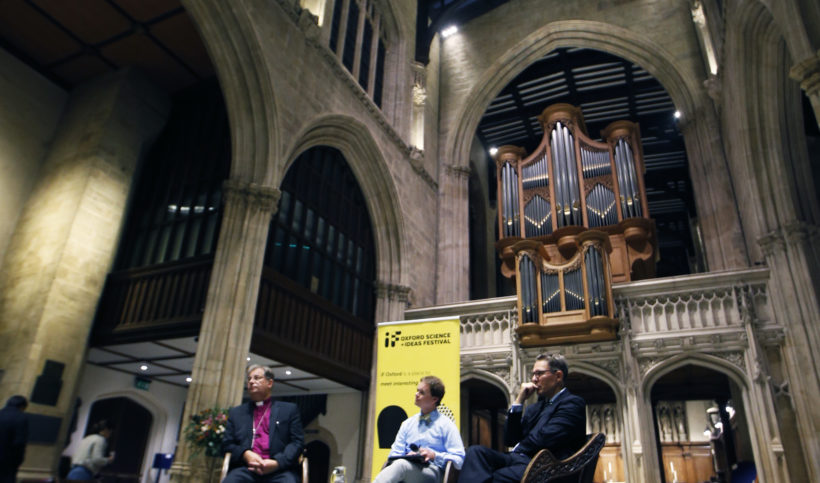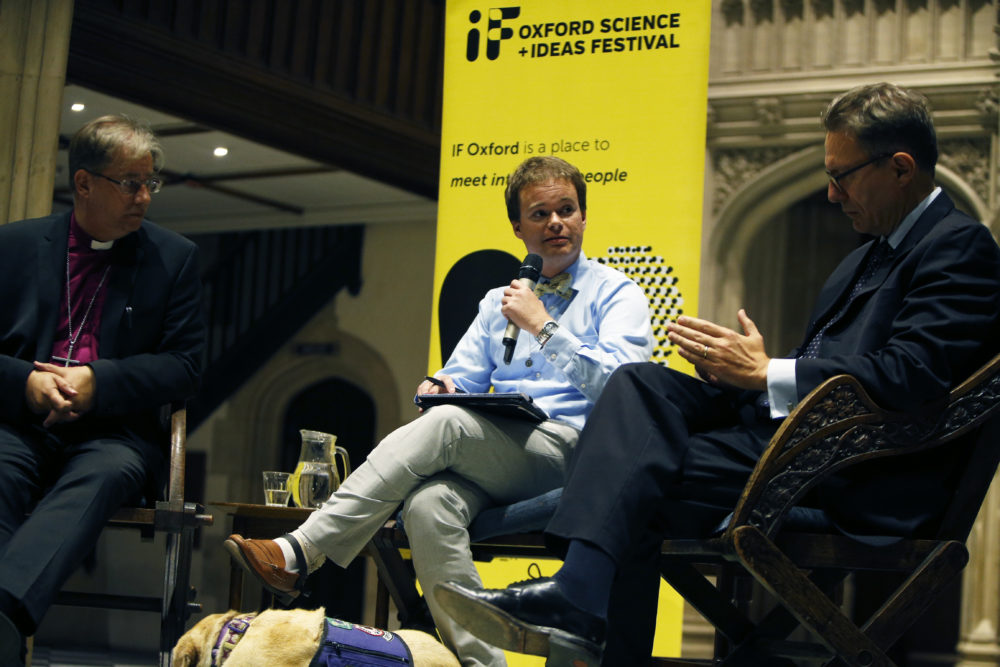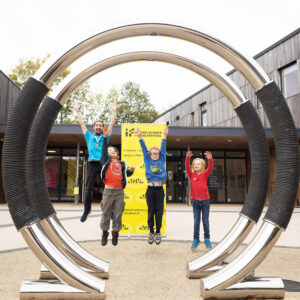The Future of Artificial Intelligence? with IF Oxford
Wednesday 23rd October 2019

Recently put on the map with the canonisation of Cardinal Newman, University Church again became the focus of attention last night with a discussion between Rt Revd Steven Croft, the Bishop of Oxford and Professor Luciano Floridi, hosted by Jory Fleming. The event was organised for IF Oxford – the science and ideas festival, of which Science Oxford is associate partner.
The Bishop is part of the House of Lord’s Select Committee on Artificial Intelligence and Floridi is the Professor of Philosophy and Ethics of Information and Director of the Digital Ethics Lab at the Oxford Internet Institute. He is also the Faculty Fellow of the Alan Turing Institute (the national institute for data science) and Chair of its Data Ethics Group.

Artificial intelligence (AI) is the simulation of human-like intelligence processes by machines, especially computer systems – including learning, reasoning and self-correction. AI will be used in all kinds of everyday ways from organising traffic flows to diagnosing medical conditions more effectively.
The Bishop says that AI raises the question as to what it means to be human. He pointed out that we must all realise it’s a present reality, not a future possibility. That’s why we need to look carefully into the implications of the technology.
As both the Bishop and Luciano Floridi mentioned, there is immense potential for good in AI: labour-saving routine jobs can be delegated; we can be better connected; it can improve productivity; there are significant advances in medicine – especially in diagnosis and detection. And, there will be new ways to organise our ever-complex world.
However, there are also significant risks and potential for misuse. For example, if our data falls in to the wrong hands,political debate and opinion can be manipulated. Important decisions can be made in our lives with little human involvement. And, inequality may widen further as AI automates areas of the job market. The Bishop said that everyone should read Shoshana Zuboff’s book Surveillance Capitalism – an exposé of the business model that underpins the digital world where companies are using our data to predict and influence behaviour to make money.
We are now at a critical moment. We have the power to shape AI as it develops. Luciano Floridi gave us an automotive analogy: innovation in AI is like having your foot on the pedal; the direction of AI is controlled by whoever has their hands on the wheel. The driver should be our legal system. However, the faster we go, the more we have to “steer” to keep in control.
As the Bishop pointed out, the ethical framework won’t come from the Big Tech companies in Silicon Valley who want minimum regulation and maximum freedom. Nor will it come from China, the other major global investor in AI, which takes a very different view of how personal data should be handled. The Bishop of Oxford hopes that meaningful guidance will come from Europe with its strong foundations in Christian values and the rights of the individual to shape AI for the common good. In June of this year, the University of Oxford announced a gift of £150 million to create the Schwarzman Centre for the Humanities (the largest grant since the Renaissance) which will be home to Oxford’s new Institute for Ethics in AI. The Institute will lead the study of the ethical implications of AI and other new computing technologies. All eyes might be on Oxford to lead the way?
Both the Bishop and Luciano Floridi emphasized that we all have a responsibility to stay informed about AI and continue the debate. We must make sure we get it right for future generations.
IF Oxford the science and ideas festival runs until 28th October 2019 – visit here for the full programme.

Blog by Georgina Matthews, The Oxford Trust Communications Manager – volunteering at the event for IF Oxford.


